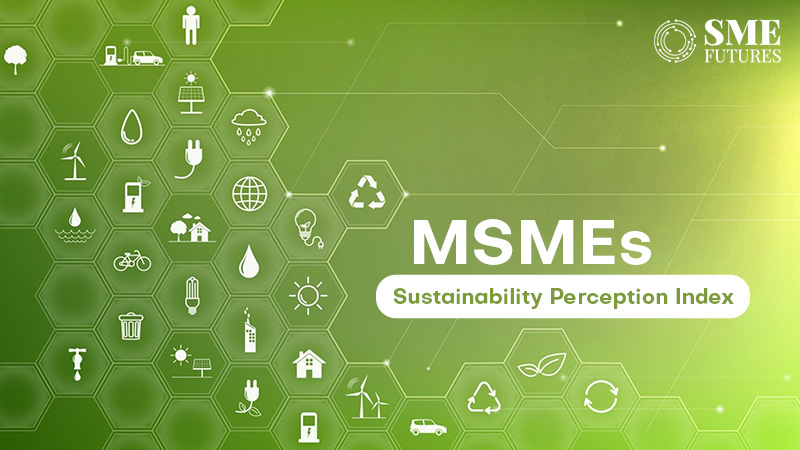The SIDBI – D&B Sustainability Perception Index (SPeX – the green pulse indicator) has been reported at 46 for April – June 2023. This marks a return to the level of 46 observed in October – December 2022, following a peak of 54 during January – March 2023.
SPeX thoroughly examines the assessment of both internal and external factors that contribute to the perception of sustainability in businesses across three key dimensions: awareness, willingness, and implementation.
In the April – June quarter, the index indicates a reduction of 20 per cent in implementation scores, a 17 per cent decrease in willingness scores, and an 11 per cent downturn in awareness scores—the narrative centres primarily around awareness, orientation, and preparedness of MSMEs on sustainability.
The significant fluctuation in the index is due to a lack of knowledge about institutional products and the internal expertise of enterprises regarding sustainability in different pockets.
One of the key findings is that 67 per cent of MSMEs have reported an improvement in their understanding of sustainability measures compared to the previous quarter. However, a concerning statistic reveals that 1 in 4 MSMEs lack internal expertise in sustainability measures, highlighting a need for external support.

Half of these enterprises are seeking direct monetary incentives as a catalyst for adopting sustainable practices. Additionally, 8 in 10 MSMEs express the need for increased awareness of sustainability measures, policies, and procedures.
Strikingly, 73 per cent of MSMEs have yet to establish their sustainability targets, indicating room for growth in this area. While 1 in 10 MSMEs recycle more than 75 per cent of their water consumption, significant room remains for improvement.
Notably, MSMEs identify a pressing need for technical support and capital to undertake sustainability initiatives, ranking these challenges among their top three concerns. Cost reductions through efficiency gains and external factors are the primary motivators for MSMEs to engage in sustainability actions.
Furthermore, these enterprises anticipate positive impacts on revenue and employee morale as the top outcomes of their sustainability efforts. Approximately 50 per cent of MSMEs claim to utilize energy-efficient and climate-friendly equipment while also practising emissions, waste, water, and energy reduction, reuse, and recycling.
However, only 33 per cent report prompt and full compliance with sustainability regulations, and just 38 per cent source from ethical suppliers, indicating the need for greater compliance and ethical sourcing practices within the MSME sector.
Talking on the report, Dr. Arun Singh, Global Chief Economist, Dun & Bradstreet said, “It is encouraging to see around 80% of MSMEs recognize the importance of raising awareness about sustainability measures, policies, and procedures. However, to improve sustainability adoption by MSMEs in India, policymakers should provide financial incentives and tax benefits to MSMEs that implement eco-friendly practices. Additionally, creating accessible training programs and workshops focused on sustainable business strategies would empower MSMEs to make informed decisions that positively impact the environment and their bottom line.”
Dr. R.K Singh, CGM, SIDBI stated, “SIDBI – D&B Sustainability Perception Index Survey, April-June 2023 clearly indicates a compelling need to augment the ongoing efforts to increase both awareness and willingness among MSMEs about sustainable development. While awareness and willingness remain high for larger companies, the level of implementation remains low across all sizes of businesses.”











